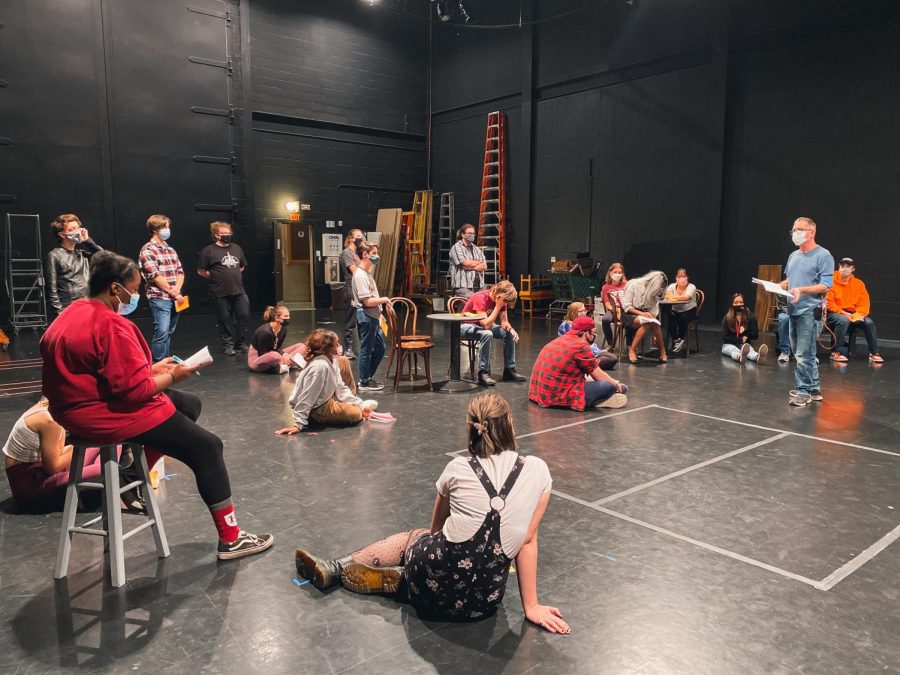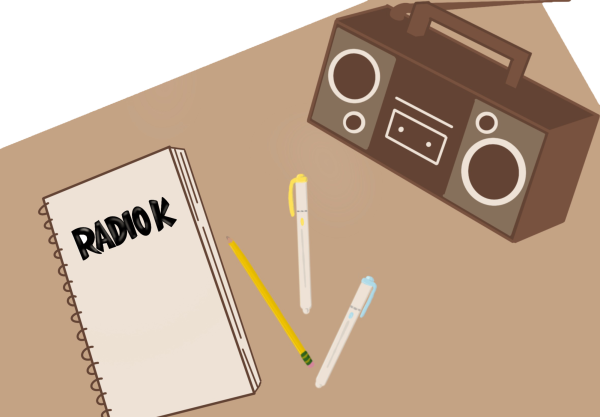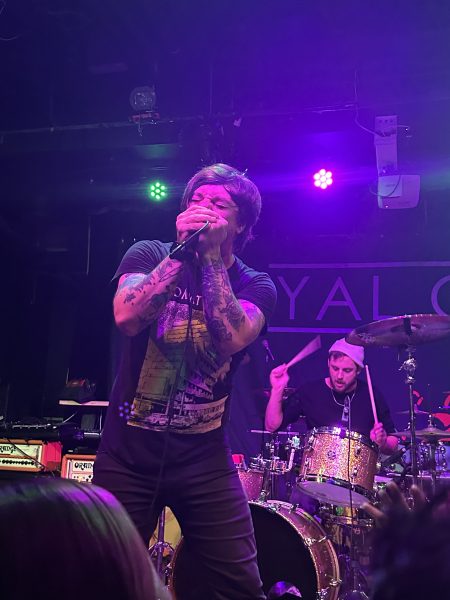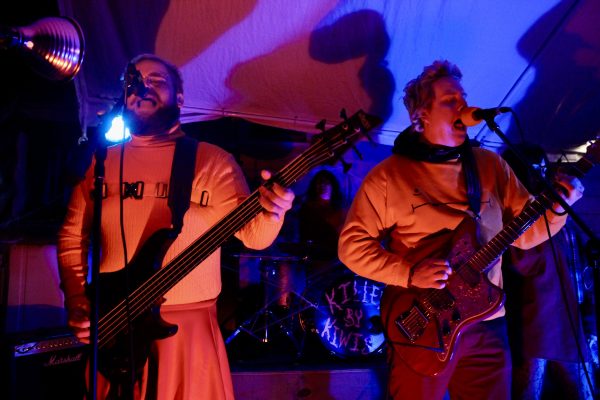Metatheatrics come alive in Our Town
Hamline University Theatre takes the premise of Thornton Wilder’s “Our Town” and reclaims it as something new.
Director of Hamline Theatre’s “Our Town” production, professor Jeff Turner, speaks to the cast and crew during rehearsal. Tickets to attend the show can still be purchased for November 18, 19 and 20.
November 17, 2021
Existentialism is a surprisingly common topic to breach within fiction. Humans have been wondering about the nature of their own lives since the beginning of time, and topics of death, purpose and agency are all large parts of human experience. Written in 1938 by playwright Thornton Wilder, “Our Town” follows various citizens within the fictional small American town of Grover’s Corners. The play has three acts: Daily Life, Love and Marriage, Death. Each act shows the growth and changes of the ensemble cast throughout their lives, as well as the way the world progresses.
“Our Town” isn’t a very typical play in its structure. It’s more so made up of shorter vignettes and episodic yet connected story beats within a thematic throughline. Most notable is the friendship and eventual romance between George Gibbs and Emily Webb, as well as their parents’ marriages and the way they settled into their lives. Throughout the play, most characters tend to ponder their own purpose, and the introspective examination of American life is a large theme throughout the play.
Within Hamline Theatre’s production, the strongest aspect was by far the acting. George Gibbs, played by sophomore Nathaniel Brelsford, and Emily Webb, played by junior Essence Boe, both showed a great amount of vulnerability and tenderness in their roles and through their characters’ relationship. The Gibbs and Webb families were all superbly acted, and the maturity and weight given to the parents through their performers (first-year Jason Elyea-Wheeler and senior Nicole Ngamme as the Gibbs, and junior Walker Embser-Herbert and junior Yoora Lovaas as the Webbs) was truly entertaining and captivating.
The lighting and staging throughout the show at times was a bit difficult to fully take in from the seating arrangement. It wasn’t always at the best vantage angle, and the sometimes condensed feeling of the play didn’t always lend itself to the scope of the setting. However, specific lighting cues in the third act were incredibly well-done and striking. Especially in communicating the theme o
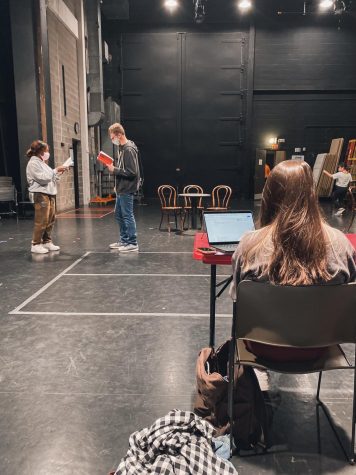
“Our Town.” The performance is a reimagining of the 1938 play by Thorton Wilder.
f death and the tragic nature of the characters’ lives.
The story content of “Our Town” may not work for all viewers. The play is much slower and metatextual, sometimes to its detriment of character depth or story brevity, but the themes of each act are able to ring true with its own take on emphasizing an empathetic lens with which to view its characters.
Overall, “Our Town” was a wonderfully weird and introspective production, and I walked away from it feeling a sense of satisfaction with the way the characters’ fates turned out. Despite the sadness and the raw hurt of seeing characters reckon with life and death in the same way that we all do—there’s a spark of optimism within the play. Can life truly be good if all that awaits at the end is death? Well, that’s up to us. We all choose whether or not to allow ourselves to feel despair at the idea of living, or joy. Is life worth living? In “Our Town,” that’s ultimately a subjective question. Life as a whole may not inherently be worth living, but the life that you have—in all its individual challenges and triumphs—certainly is.
Hamline Theatre’s rendition of “Our Town” will have more showings on November 18, 19 and 20 at 7:30 p.m. Tickets can be purchased for just $2 by Hamline students. For information on reserving tickets, visit facebook.com/HamlineUniversityTheatre.

